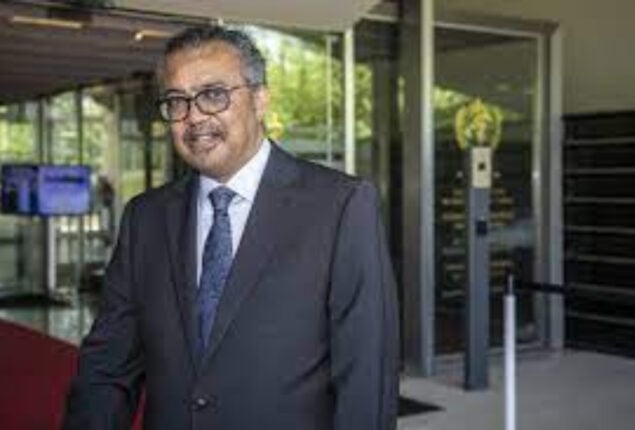
WHO
- The rapidly spreading monkeypox outbreak represents a global health emergency, the World Health Organization’s highest level of alert, WHO Director-General Tedros Adhanom Ghebreyesus
- The WHO label – a “public health emergency of international concern (PHEIC)” – is designed to trigger a coordinated international response and could unlock funding to collaborate on sharing vaccines and treatments.
- “He continued, “Stigma and bigotry can be as harmful as any pathogen.
The rapidly spreading monkeypox outbreak represents a global health emergency, the World Health Organization’s highest level of alert, WHO Director-General Tedros Adhanom Ghebreyesus
The WHO label – a “public health emergency of international concern (PHEIC)” – is designed to trigger a coordinated international response and could unlock funding to collaborate on sharing vaccines and treatments.
Members of an expert committee that met on Thursday to discuss the potential recommendation were split on the decision, with nine members against and six in favour of the declaration, prompting Tedros himself to break the deadlock, he told reporters.
At a media event in Geneva, Tedros stated, “Although I am announcing a public health emergency of international significance, for the time being this outbreak is focused among males who have sex with men, especially those with several sexual partners.”
He continued, “Stigma and bigotry can be as harmful as any pathogen.”
He said that, outside of Europe, where the WHO has classified the risk as high, monkeypox, which spreads through intimate contact and typically results in flu-like symptoms and pus-filled skin lesions, was a moderate danger worldwide.
A “call to action for the global community to combat the spread of this illness,” according to the White House, was made in the declaration. A “organised, multinational response is required,” according to Raj Panjabi, head of the White House pandemic preparedness office, to stop the disease’s spread and safeguard the people most at risk of catching it.
However, two sources told Reuters early on Saturday that Tedros had likely opted to support the highest warning level owing to worries about rising incidence rates and a lack of vaccines and treatments. Previously, Tedros had generally supported expert committee decisions.
More than 16,000 cases of monkeypox have been reported so far this year in more than 75 different countries, with five fatalities occurring in Africa.
Outside of Africa, where it is prevalent, the viral disease has been mostly spreading in recent outbreaks among men who have intercourse with other men.
Monkeypox virus positive and negative test tubes are depicted in the illustration for the summit between the European Union and the African Union in Brussels.
Health professionals applauded the WHO for deciding to publish the PHEIC statement, which had previously only been used in connection with the coronavirus pandemic and ongoing polio eradication efforts.
Lawrence Gostin, a professor at Georgetown Law in Washington, D.C., said the choice was politically daring and that declaring an emergency at this time would be a historic mistake.
According to Josie Golding, the Wellcome Trust’s head of epidemics and epidemiology, the choice should aid in limiting the spread of the viral illness. We cannot continue to wait for diseases to worsen before acting, she warned.
Also Read
Read More News On
Catch all the International News, Breaking News Event and Latest News Updates on The BOL News
Download The BOL News App to get the Daily News Update & Follow us on Google News.




